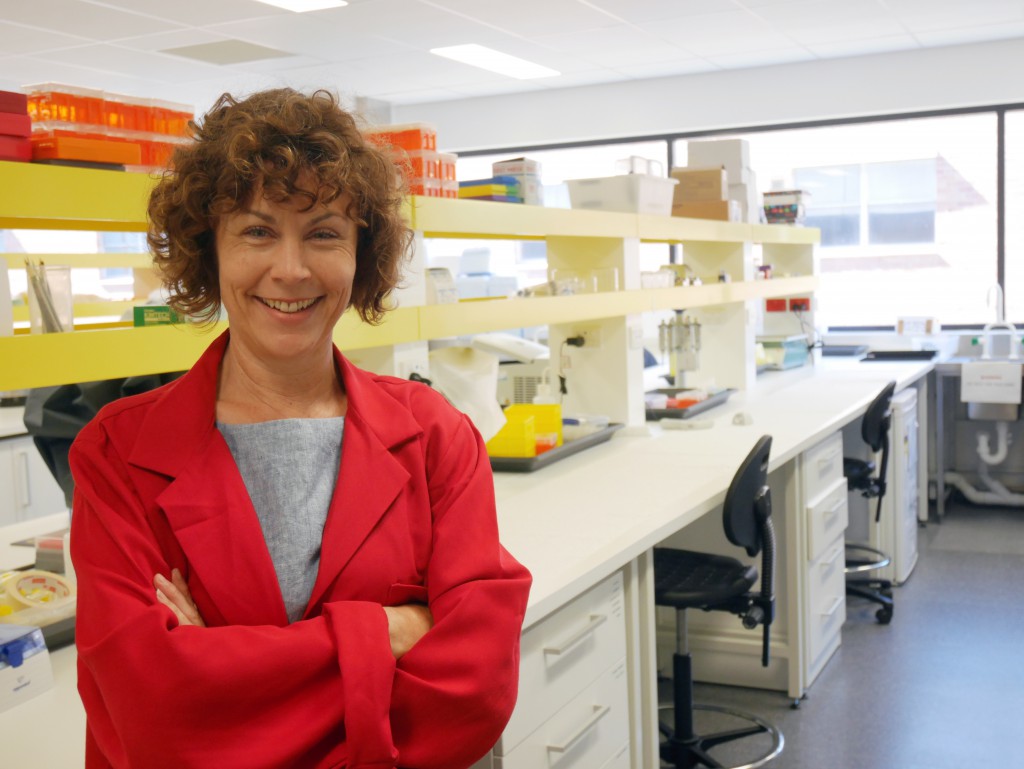With the Curtin Health Innovation Research Institute’s (CHIRI) research continuing to grow, so too has its leadership team, with Professor Melinda (Lindy) Fitzgerald being appointed as the inaugural Deputy Director of the institute.
Already a CHIRI researcher co-appointed by the Perron Institute for Neurological and Translational Sciences and located at the Sarich Neurosciences Research Institute Building in Nedlands, Lindy will work closely with CHIRI’s Director, Professor John Mamo, to take the significant work undertaken by the institute “to the next level”. At the top of Lindy’s list is capitalising on existing research collaborations and identifying new opportunities.
“Since its inception, CHIRI has been busy refining its research focus and strengths and building a culture of research excellence,” Lindy said. “Now is the time for CHIRI to take the opportunity to capitalise and further encourage national and international collaborations to the next level.”
Professor Mamo said he is delighted to be welcoming a researcher of Lindy’s calibre to the Deputy Director role.
“Backed by her 15 years of post-doctoral research experience, Lindy will take a lead role in helping develop and implementing strategic medical-research initiatives and partnerships relevant to the CHIRI mission of finding preventative and treatment strategies for chronic diseases in ageing,” he said.
“Lindy will work closely with our collaborators and the wider CHIRI community to build capacity within our key areas of research focus – those being vascular and metabolic diseases, immune and neurological disorders and cancer.”
Before turning her focus to neuroscience in 2006, Lindy’s research was in vascular biology, and she completed her PhD in leukaemia (cancer) research. Lindy credits this diverse research experience for her ability to draw upon a range of disciplines and technologies and to “think outside the box” in her pursuit of new research findings and outcomes.
“Lindy’s approach to research resonates with CHIRI’s philosophy of finding new preventative measures and treatments for diseases that burden older-aged Australians,” Professor Mamo said.
In 2018, Lindy secured a $1.2 million National Health and Medical Research Council (NHMRC) grant as the Principal Investigator of a research study looking to define the unifying mechanisms of oxidative damage to oligodendrocyte DNA in neurotrauma, neurodegenerative and demyelinating disease, such as Multple Sclerosis. The research team will look for common mechanisms of damage among age-associated diseases and injuries (Alzheimer’s Disease, Multiple Sclerosis and Neurotrauma).
As current Chair of the Symposium of WA Neuroscience organising committee, which is strongly supported by CHIRI, Lindy has been key in ensuring the vibrancy of this annual meeting of neuroscientists is enhanced and its standing in the national and international research communities maintained.
“What I love about CHIRI is its breadth of work, which allows for some very interesting collaborative opportunities, and the institute’s great collegial and collaborative culture,” Lindy said.
“I’m excited at this opportunity to help grow CHIRI’s research excellence and drive new strategic initiatives to take the institute to the next level and support research outcomes that make a difference to the health and lives of Western Australians and the world.”
